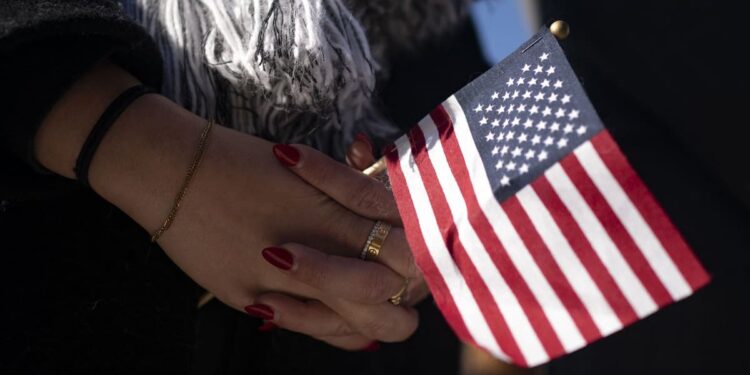The approach of the election in the United States has put part of economic activity on hold, with customers and businesses preferring to wait for the outcome of the election before spending or investing, according to a Fed survey published Wednesday.
• Also read: An ex-military man formerly close to Trump says he is “fascist,” while Republicans talk about the “enemy within”
• Also read: American election: the Caisse de dépôt on guard in the event of a Trump victory
• Also read: Harris accuses Trump of being ‘increasingly deranged’ and seeking ‘absolute power’
“The uncertainty surrounding the presidential election poses risks to the general business climate,” details the Boston Fed, in the “Beige Book” of the American Central Bank (Fed), a survey carried out at the end of September and the beginning of october.
The uncertainty linked to the November 5 election, which will pit Democrat Kamala Harris against Republican Donald Trump, is cited by many American companies and economic players, interviewed by the 12 regional branches of the Fed for this survey.
The New York Fed reports “hesitancy in decision-making due to increased uncertainty surrounding the presidential election.”
In the Minneapolis region, “a certain caution in terms of hiring” is mentioned, due to this uncertainty, but also to a “certain optimism regarding the increase in demand for labor after the election” .
The Dallas Fed, which covers Texas and southern New Mexico, notes that “the outlook for manufacturing remained weak, with weak demand and increased uncertainty related to the election cited as the main difficulties.
Same thing in the industrial region of Cleveland, in the northeast, where “some manufacturers were waiting to place orders due to uncertainty related to the presidential election.”
In this same region, “two builders indicated that many companies planned to wait until after the general election to undertake construction projects.”
A Richmond-area textile manufacturer says it expects “tepid demand as customers buy cautiously into the new year due to the ‘usual period of nervousness’ leading up to elections.”
“Business travel has slowed in recent weeks beyond seasonal factors, in part due to increased uncertainty linked to the elections,” also notes the San Francisco Fed, which covers a large part of the American West .
The next Fed meeting will take place the day after the election, on November 6 and 7. After lowering rates in September, for the first time since 2020, it is expected to continue, but at a slower pace, with a drop of a quarter of a percentage point expected, compared to half a point previously.



